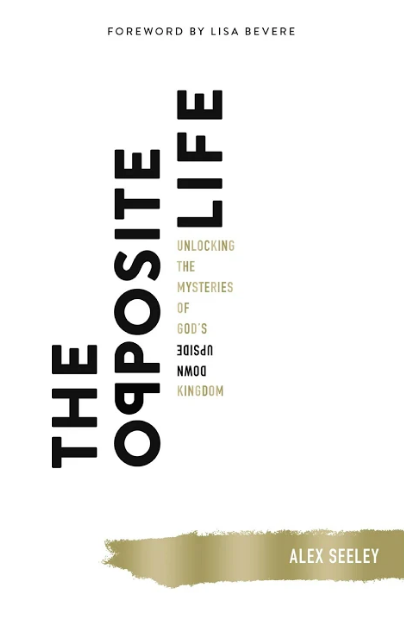Women Leading through Forgiveness and Grace: Nona Jones & Alex Seeley
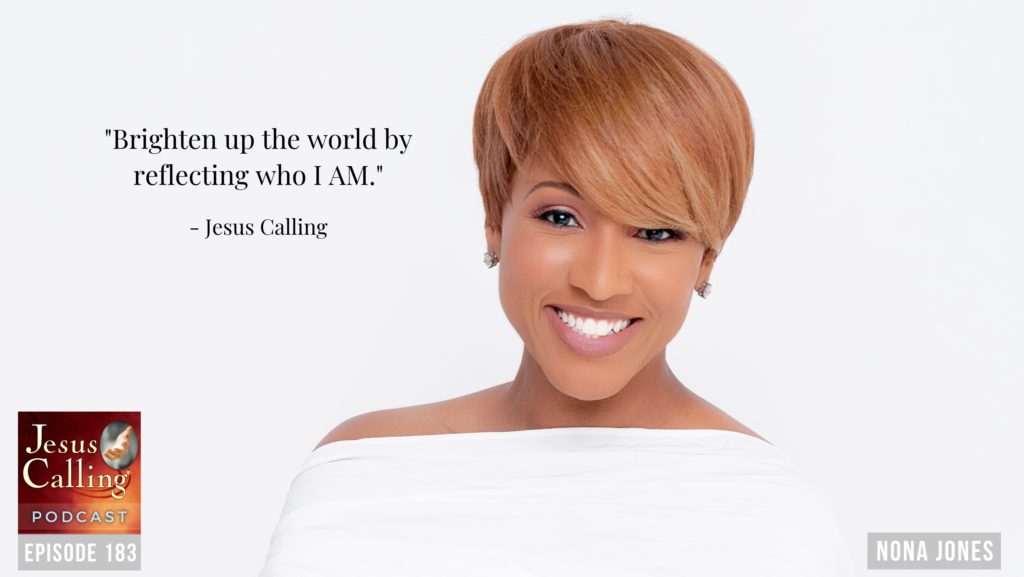
Nona Jones: I’ve often believed that a lot of times, we feel stress in our life because we’re operating outside of what God has graced us to do. For me, that’s always been an indicator that I’ve taken on more than I should. Even though I have a lot on my plate, I believe that God has graced me to do it all.
Women Leading through Forgiveness and Grace: Nona Jones & Alex Seeley – Episode #183
Narrator: Welcome to the Jesus Calling Podcast. This week’s guests are two women who are charting new territory in faith-based arenas: Nona Jones, who leads faith-based partnerships at Facebook, and pastor and author Alex Seeley.
Up first, as a young girl, Nona Jones faced years of trauma and abuse at the hands of a caregiver. Through a friend, she found a community of believers and felt, for the first time, that she had value. As Nona grew up and found success in her career, the trauma she had experienced long ago began to resurface, causing her to lose her footing. As she opened up about what she had experienced, Nona found healing from her past wounds and was on her way to a better place emotionally when, out of the blue, an opportunity came her way she could have never imagined reaching others with the same Good News that had changed her life.

Nona Jones: My name is Nona Jones and I am a speaker, I’m a preacher, I’m an author. I am a wife, I’m a mother. I’m a pastor’s wife. And I also lead faith-based partnerships at Facebook.
A Child Betrayed
I was born in the summer of 1982. I was born to parents who had been married for about fifteen years. My father wanted to be a dad throughout the marriage, but my mom didn’t actually want to have children. But fifteen years into their marriage, she found out she was pregnant, and my father was excited, but she was actually really disappointed, and she cried. She didn’t want to have a child.
So to make matters worse, about halfway through the pregnancy, my father started to have stomach pain, and he went to the doctor to have some tests run, and they diagnosed him with terminal stomach cancer. They gave him six months to live.
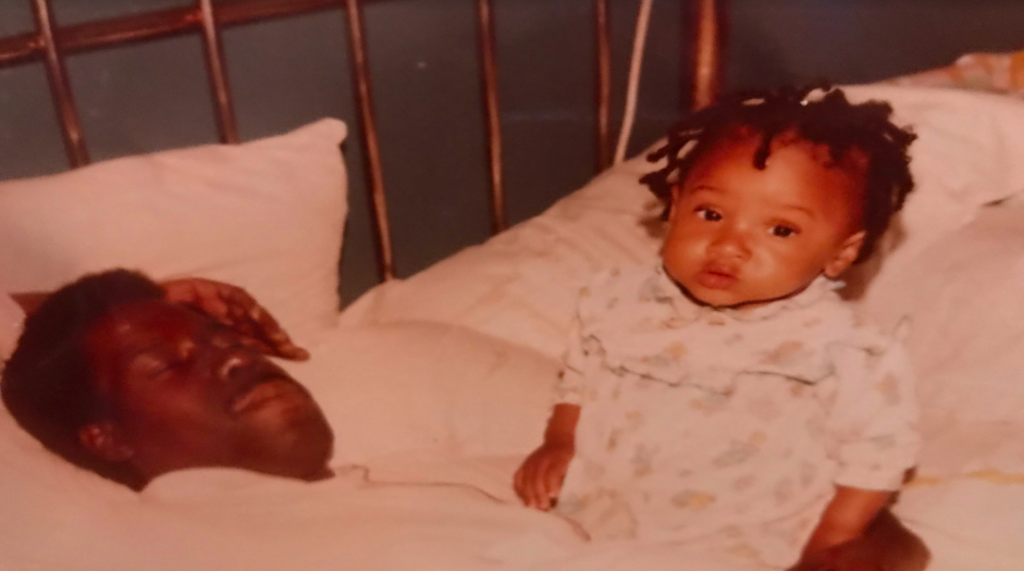
To make matters [even] worse, my mom had some significant mental illness. She would get really angry, kind of bipolar-type behavior. My father was really concerned about whether I would be able to grow up in a stable household, so he fought really, really hard against that diagnosis. And he actually lived until about two months shy of my second birthday.
After his funeral, my mom moved us to the other side of the country. She had met a guy, and he promised to take care of her and me. But after we got there, the relationship basically unraveled, so she was with me in this new place. And she basically had a sequence of boyfriends that came in and out of her life, in and out of my life.
She met a guy who became her live-in boyfriend, and he started to do really inappropriate things that made me uncomfortable, even at that young age. One day, my mom came to me and told me she had to go back to New Jersey, where we are from, because her sister passed away, and she was going to leave me in his care. I said, “Mom, I would prefer to go with you, please. Take me with you.” But she said that we didn’t have the money, [we couldn’t] afford for me to go with her, so she was going to have to leave me for a few days.
That night, I remember I locked my bedroom door, because, of course, I just wasn’t comfortable with this guy. And I learned [that night] that a stringed-wire hanger could actually pick the lock. That was the first time—I was about five years old—when he abused me sexually.
I remember when my mom came back, you know, I didn’t even want to look her in the eye, because I felt like she could see it in my eyes. He even told me, he was like, “You better not say anything, because she’ll get rid of you if you do.” So I had this fear inside of me.
He continued to abuse me, multiple times. And then one day, I told my mom. I was so scared, but I just felt like I had to say something, because the pain of what he did and the pain of how I felt, even if she got rid of me, I was like, At least she’ll know. So I told her, and she actually had him arrested, and I was so grateful. I was like, All right, this is over.
She took me out on the back porch around the time of his release, and she asked me, “What would you think about him coming back?” And I was like, “I don’t want [him] to come back.” She basically said that we needed money in the house, and she was the adult, so she was making the decision. She ended up taking me with her to the jail to pick him up and bring him back.
The abuse continued shortly after he got back, and I learned not to say anything because I felt like I’d already said something and it didn’t matter. That was between the ages of five and eleven.
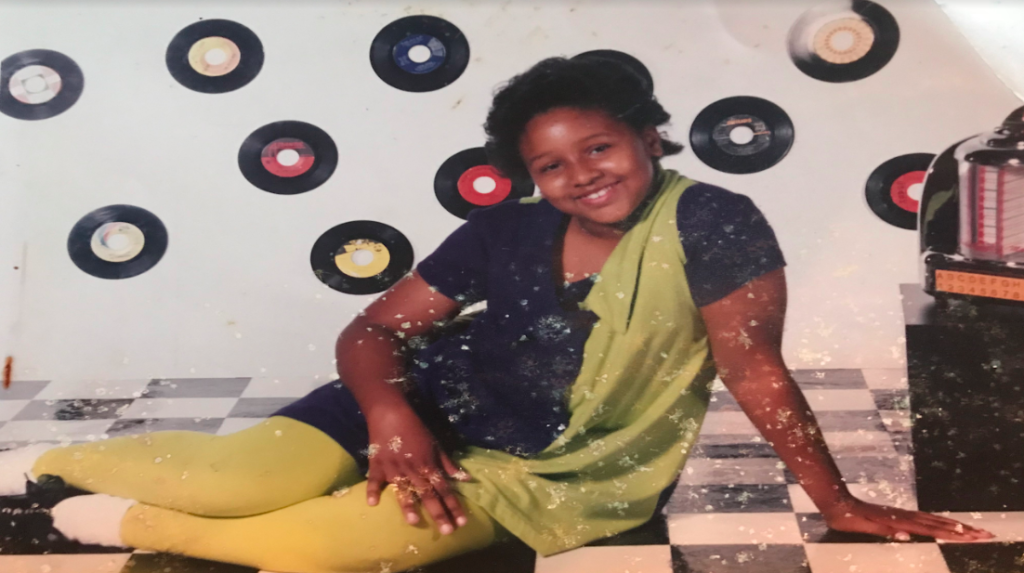
Throughout elementary school, I had always been the kid that was acting out. I was labeled a problem child. People said that I had learning disabilities, but the reason I was acting out [was] because of so much chaos at home. I was responding and reacting to trauma, and nobody ever asked me why I was acting that way. They just assumed I was a bad kid.
“The reason I was acting out [was] because of so much chaos at home. I was responding and reacting to trauma, and nobody ever asked me why I was acting that way. They just assumed I was a bad kid.” – Nona Jones
When I was in the sixth grade, a classmate of mine invited me to go to church. I’ll never forget the first time I walked in that church. There were people who didn’t even know me, but they hugged me and they loved me. They welcomed me. They really made me feel like I belonged. That was the first time I ever felt like I really mattered, like I was really valued. What they didn’t know is that by the time I had gotten to that church, at age eleven, I had already attempted suicide twice. I had already tried to take my life. The first time was at age nine. The second time was around ten. I tried to slit my wrists. I have this scar on one of my wrists that’s a constant reminder of what I tried to do [to end my life], but it’s also a reminder of God’s grace, because He determined that my life was worth living, even when I didn’t see it.
“I have this scar on one of my wrists that’s a constant reminder of what I tried to do [to end my life], but it’s also a reminder of God’s grace, because He determined that my life was worth living, even when I didn’t see it.” – Nona Jones
The Healing Power of Bringing Your Story into the Light
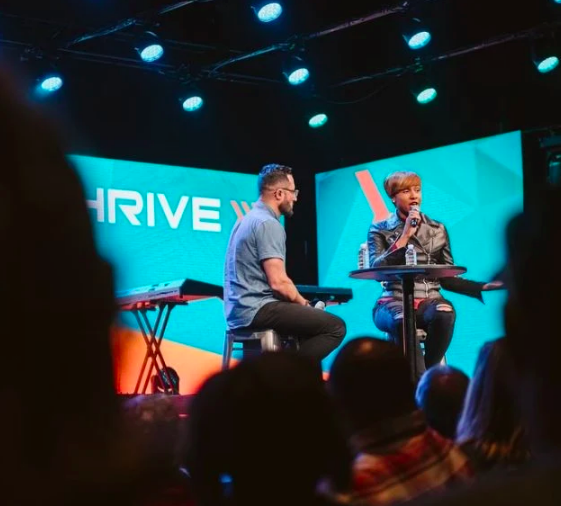
Part of the reason why I am so open is I have discovered that throughout my own personal journey to freedom from that painful past, that the true antidote to darkness is light. So when we carry shame, and we don’t talk about what happened to us, all it does is it keeps us in bondage to our past.
What happens to us can oftentimes shape how we see ourselves. Trauma really changes the way you see yourself. The thing I would like to encourage other people to know is you are not what happened to you. What happened to you was a moment in time, but that’s not who you are. And every single time I share [my story], there are people who come up to me and say, “I’ve never told anyone.”
“Trauma really changes the way you see yourself.The thing I would like to encourage other people to know is you are not what happened to you.” – Nona Jones
Just this morning, a guy was doing my makeup, and we were talking, you know, as we do. And I just happened to mention to him that I was talking about the goodness of God, and I just happened to mention my story to him, and he paused and he said, “That happened to me too.” And he said, “I’ve never told anyone. No one in my family knows. And the worst part of it is it’s a family friend who still is coming around the family. And that’s why [I didn’t say anything].” When I hear things like that, I lend my voice to it, because there are people walking around in shame. You know, they feel like, Oh, it was my fault, or, Maybe I did something or I said something that made them think that this is what I wanted. And I’m like, “You know what? It’s time out for shame. We literally have to eliminate it.” I believe that there’s purpose in our pain, and I believe that God can give us beauty for ashes. We just have to be willing to admit what happened and allow God to use that story.
It’s been a journey. It’s been a challenge, and it’s a daily process, but there is no point where I could say, “’m so over it.” That doesn’t really happen when you’ve been traumatized. What happens is you learn how to grow from it. You learn how to live with it. But that’s why I believe that the true power that we reclaim in our lives from our trauma is when we acknowledge its effect on us, and we begin to allow the power of God to work in our lives.
A Leap of Faith
I never thought I would be [working] at Facebook. I do not have a background in technology or social media. Essentially, in 2017, I heard from God. He told me that the assignment I was in at that time was over. I was at the chief executive level of a state-wide network of alternative schools in Florida. These were schools for girls who had experienced trauma and who had been expelled or suspended from regular school. I was deeply, deeply aligned with that mission, and I really thought I would be there for the rest of my career, but God said, “This assignment is over.”
And I was like, “All right, Lord, if this assignment is over, then what’s next?”
And He wouldn’t tell me what was next. He simply told me to resign from that job at the end of the fiscal year, which would have been June 30th, 2017.
I met with my boss on June 30th, and I gave her my letter of resignation. We met at 1:00, and she was like, “Well, what are you going to do? What’s next?”
I said, “I’ll tell you soon.” That’s all I could say. I didn’t want to be like, “I don’t know, God just told me to resign,” because then she’d be like, “Umm, okay . . . ”
We finished talking at 1:40, and I was driving home. It was around 2:05 that my cell phone rang, and it was an unfamiliar area code. I was like, “Okay, I’m not taking that call.” I don’t ever answer those calls, I think they’re telemarketers. But the Holy Spirit said, “Take that call.” I answered it, and the woman on the other line said, “Is this Nona Jones?”
I said, “Yes,” and she said, “I’m calling from Facebook.”
Of course, I was like, “Facebook doesn’t call people, so who is this?”
And she said, “No really, I’m calling from Facebook.”
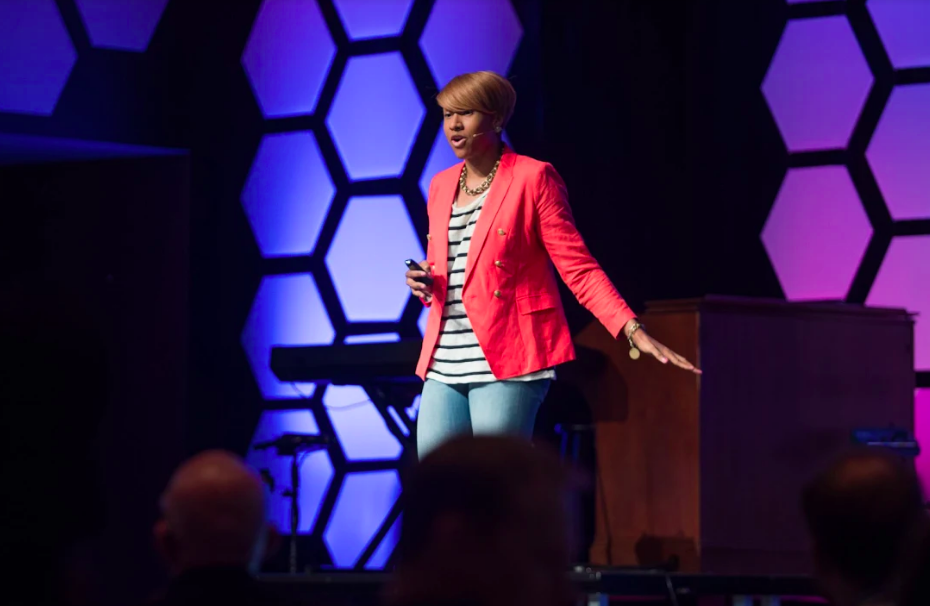
Apparently, the week before she called me, Mark [Zuckerberg] changed the mission of the company to focus on community building. And one of the communities that the company wanted to focus on was communities of faith. My name had apparently been given as the person to talk to about helping the company lead that work and the thing that’s amazing is, you know, I live in Florida. The company is headquartered in California. I do not have a background in tech, I’m not in any of those circles. Twenty-five minutes after I resigned from my job in faith, Facebook called me out of the blue.
“Twenty-five minutes after I resigned from my job in faith, Facebook called me out of the blue.” – Nona Jones
Connecting Believers with Churches Everywhere
I get to work with leaders of faith, pastors, churches, Christ-centered organizations all over the world, to help them use Facebook for the purposes of ministry, which is really about community building. What we see is that two out of three churches right now are either declining or plateauing in attendance. People aren’t physically showing up like they used to, while at the same time, there are more than 30,000 searches every month for church online on Google. People are looking for an online church experience, which means that people are searching for faith, they’re just not necessarily coming to a building to find it.
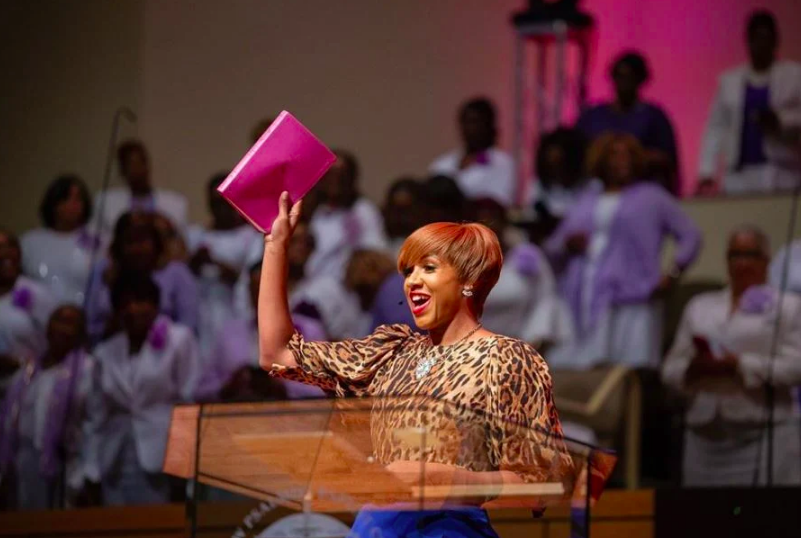
Gallup did a study a few years ago, and they asked, “How many people are actually going to church on the weekend?” Forty percent of Americans said that they’re going to church on the weekend, but actual attendance is like twenty percent. So eighty percent of people are not [going to church]. And my heart is really after that eighty percent. I’m kind of like, “All right, it’s wonderful to get people in the building. There’s nothing more gratifying.” I’ll tell you, as a preacher, there’s nothing more gratifying than being at a pulpit and looking out into a full audience to declare the Word of God. There’s nothing more gratifying. At the same time, that’s only a drop in the bucket of the people who are in need of the Lord, but they’re not going to show up to the building.
The thing about discipleship, as opposed to a service, is that church was never meant to be a program. You know, if you look at the life of Jesus, He didn’t tell people, “Hey guys, come see me at the temple on Sunday at 11:00, I have this amazing series that’s coming up.” He didn’t do that. He ministered to people wherever they were. He was out walking, He would heal people, he would pray with people. He did ministry where it needed to happen, and it wasn’t necessarily a date, time, and location.
“If you look at the life of Jesus, He didn’t tell people, ‘Hey guys, come see me at the temple on Sunday at 11:00, I have this amazing series that’s coming up.’ He didn’t do that. He ministered to people wherever they were.” – Nona Jones
And so I really feel like social technology enables leaders to get back to a biblical model of church.
There’s Freedom in Forgiveness
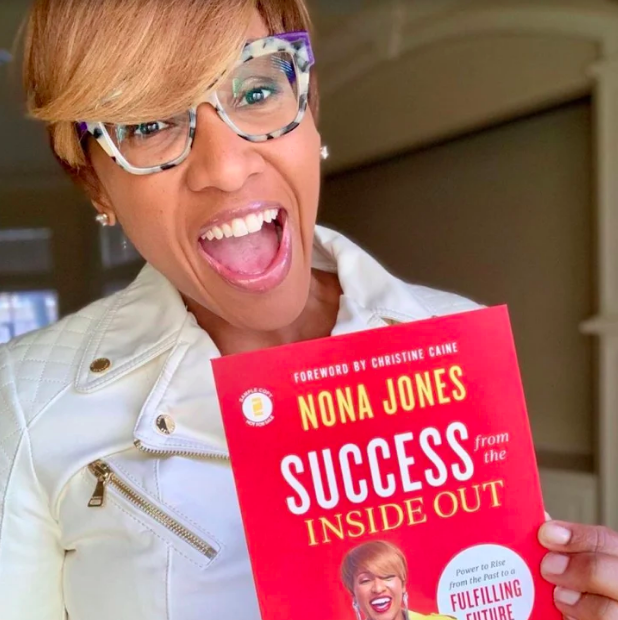
This is the first book that I am publishing on a major scale. It’s called Success from the Inside Out, and it’s about how to rise from your past into a fulfilling future, using my own story as the backdrop for the plot, which is, “You know what? Significant trauma doesn’t have to derail your future. It really can be the prologue to your story.”
I’ll tell you the secret of it all, and this is the spoiler: the secret of it all is forgiveness. Forgiveness is one of those things that we don’t talk about a lot, but it’s the key to freedom. And I had to realize that as long as I was holding my mom accountable, and holding my abuser accountable for what happened—yes, what they did was wrong. It was absolutely wrong. And yet, I was basically tethering my life to them because I wasn’t free. And forgiveness is basically realizing that somebody is on the hook for what happened, but it’s you, because bitterness doesn’t give you peace. It actually torments you. That’s the spoiler. There’s a whole lot more in the book, but that’s really the message: the power of forgiveness and faith in God.
Narrator: As Nona wraps up her time with us, she shares how Jesus Calling has impacted her success from the inside out and reflects on her journey through healing.
Nona: The way I heard about [Jesus Calling] is that I’m like a devotional addict, so I usually read like three or four devotionals a year. I came across it—I think a friend might have recommended it—and it’s just been such a tremendous blessing to my life because I think it helps you to set your mind every morning. That’s what we need, we need the Word to help us stay grounded.
I’m reading a passage from Jesus Calling dated July 23rd, which is my birthday, and it says:
I am the Light of the world. Men crawl through their lives cursing the darkness, but all the while I am shining brightly. I desire each of My followers to be a Light-bearer. The Holy Spirit who lives in you can shine from your face, making Me visible to people around you. Ask My Spirit to live through you as you wend your way through this day. Hold My hand in joyful trust, for I never leave your side. The Light of My Presence is shining upon you. Brighten up the world by reflecting who I AM.
This is why I wanted to read this one, because when I turned to my birthday and it talked about God being light, [it was] the biggest revelation I’ve ever had. The reason why I share my story is that God taught me that shame is what darkness is, and yet He is light. Light is truth. Light is freedom. Light is peace. And when we feel like we can’t go on, when we feel stressed, when we feel traumatized, it’s because we’re in darkness. And that’s when it’s our opportunity to call on the light of the world, and that is Jesus.
Narrator: You can find Nona’s book, Success from the Inside Out, at your favorite book retailer today.
Stay tuned for pastor Alex Seeley’s story after a brief message about a way you can connect with other Jesus Calling readers each week in prayer.
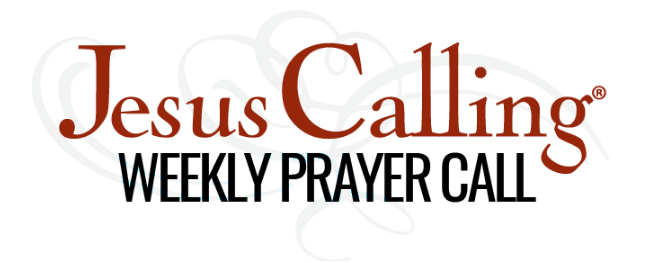
Did you know that Sarah Young, the author of Jesus Calling, prays for her readers each day? In that spirit, we want to extend the Jesus Calling prayer community out to you in a more personal way. Each Tuesday morning, you can dial in to the Jesus Calling Weekly Prayer Call, where the team from Jesus Calling and special guests will minister to us during a ten-minute call to reflect on that day’s passage from Jesus Calling, read scripture references, and pray together for each other and our world. Prayer call times are 8:00 a.m. Eastern, 7:00 a.m. Central, 6:00 a.m. Mountain, and 5:00 a.m. Pacific and are for U.S. only.
For more information on the Jesus Calling Weekly Prayer Call, or to submit prayer requests, please visit www.jesuscalling.com/prayer-call.
Narrator: Alex Seeley is a passionate communicator and teacher of the Word. Born and raised in Australia, Alex served as one of the Executive Pastors of Planetshakers Ministries for seventeen years. In 2012, Alex, along with her husband and two children, felt a calling to move to the U.S. After making the move, she encountered difficulty being embraced as a woman in church leadership. She puzzled over how she was to be used by God when no church would hire her. The answer came as she and her husband began to welcome local musicians and artists into their home who were looking for a place to find biblical teaching and community amid busy travel schedules and touring. This ministry to musicians eventually became The Belonging Co, which she and her husband Henry pastor.
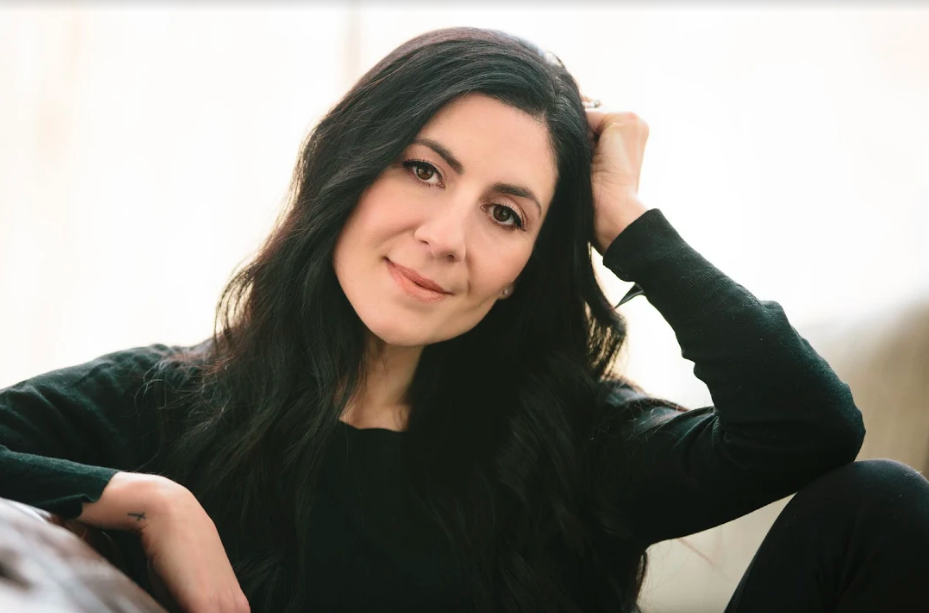
Alex Seeley: I’m Alex Seeley and I’m an Australian—as you can tell by my accent—who lives in Nashville, Tennessee with my husband and family. We pastor a church called The Belonging Company in Nashville, Tennessee, and we have been doing that for the last five and a half years. I am passionate about life. I love my children. I love my friends. And I love to preach, teach, and evangelize the Word of God, because I believe it changes lives.
I grew up in Australia, obviously, and my parents were actually immigrants from Italy. All four of us were born in Australia, I have three siblings. My parents became Christians early in the 1970s when there was a huge charismatic revival that took place, and [they] became born-again Christians. I felt the call of God in my heart at the age of eleven, and I knew I would do something to help shift and change the world through the gospel.
Following God’s Call from Australia to America
Our whole move to America was such an interesting dynamic. Since we were kids, my husband and I thought we would be [in Australia] forever. But there became this nudge in our spirit and in our heart that our season was coming to an end, and we didn’t know what it was going to look like. Like, Where do we go from here? We were part of an incredible movement in Australia called Planet Shakers, and we’d helped birth that with our senior leadership. My husband was the worship director, and I was one of the executive pastors there, and we were just loving life. But there was just this agitation in our spirit that there was a move on the horizon, so we actually talked to our senior pastors and said, “We sense it’s the United States of America, but we don’t know why.”
And they were like, “Well, let’s put a fleece out. Why don’t you apply for the green card lottery? And if you get it because it’s so hard to get, maybe that’s God opening the door and we can go from there.”
And we’re like, “Well, it’s a one in fourteen million chance,” literally because that’s how many people apply for this thing.
We put our names in, and we didn’t get it at first. It was rejected. And I was like, “Okay, well, that’s the closed door.”

July came around, and we did win the green card lottery. And our pastors are like, ”That’s God’s open door for you to go.” But we had no idea what we were going to do in America. I felt that we had to start clean and that God was forging a new path. We’ve always lived like pioneers. We’d been part of our church for over twenty-five years. And it was like, “Okay, maybe this is now everything we’ve learned. We’re just going to go and deposit over there.”
My husband being a musician and worship leader, it made sense [for us] to go to Nashville, because he’s always working with artists and writers here anyway. So we were like, “Well, let’s just land in Nashville and see if it’s a good fit. If not, the Lord will show us.”
Finding a Place as a Woman in Ministry
When I began my first job, I was part of my own youth group that I’d grown up in since I was eleven years of age. Our youth pastor and our senior pastor were very celebratory of women in ministry. The dean of the Bible college was a woman, and the senior pastor’s wife would preach, and then the youth pastor’s wife would preach. So when I got employed to be a pastor, it was encouraged for me to preach and teach.
For me, being in Australia from the age of twenty-one onwards, there was no issue being a woman in ministry. It was when I came to Nashville that I went to apply for jobs. All I’ve ever known is to be in ministry as a pastor, as a teacher, as a leader. I went to twenty-one churches not to apply for a job, but I just visited and was dumbfounded by the lack of women’s presence in leadership.
No women were being celebrated. And then I worked out very quickly that in the South, it was quite frowned upon for women to be pastors or teachers and leaders. So for me, it was just this crazy notion of, Why? You know, [there are] these two scriptures that are so contextual to their time, and if we’re going to go that bent, on using that as the letter of the law, then, you know, women shouldn’t cut their hair. And women shouldn’t wear jewelry and makeup.
I don’t think Paul was imagining that he was writing to the church of 2012 and 1985. He was writing to the church of Corinth, so it’s definitely quite a manmade interpretation that I found so disheartening because just like a healthy family needs both parents to bring balance to home life, I think a church so needs the balance of male and female attributes of the father heart of God.
“Just like a healthy family needs both parents to bring balance to home life, I think a church so needs the balance of male and female attributes of the father heart of God.” – Alex Seeley
I feel like we’ve seen such a shift in Nashville. In fact, churches that never had women on their pulpits are now having women on their pulpits because of what we’ve been able to do through Belonging. And so I’m excited and I believe the future is changing. But I think it’s such a tragedy that image bearers that are women are not being allowed to share their perspective, because God has female attributes just as much as the male, because He made us in His image.
Giving a Church Home to Artists & Musicians
It was about three or four months into being [in Nashville], and really not knowing what we were doing, that we began to see the need of musicians, artists, and writers that were church homeless because they would tour on Sunday and weren’t able to be in church, being fed in church, and being shepherded. And as a shepherd myself, I’ve been a pastor for so many years, I saw this need of, Oh my goodness, there’re so many people that need shepherding, that need a church. And also, there are so many people that are hungry for an encounter with God, but they’re being given a religious experience, but not this amazing encounter with the Holy Spirit and Jesus.
“There are so many people that are hungry for an encounter with God, but they’re being given a religious experience, but not this amazing encounter with the Holy Spirit and Jesus.” – Alex Seeley
God spoke to me through scripture and gave me a mandate that I really felt was from the Lord. We proceeded to invite people into our home, with no intention of it being at church, more of a ministry to shepherd people, and the rest is history. I mean, the place just grew and grew and grew. We invited the first five people, but since that day, people have been inviting everyone else, because it’s a place where people have encountered Jesus and the Holy Spirit. The Belonging Co was birthed about a year later, and the rest is history.

Recently, a pastor said to me, “You know what’s unique about The Belonging, that’s different than other churches? I mean, we all believe the same, Jesus. We all read the Word. We all love to worship and we all kind of do similar things. But what we’ve noticed about you at The Belonging is that you guys always make it central to presence, whereas America has really made it central to the Word.”
If you look at scripture, right back from the Old Testament, God so wanted to be with His people that He made the tabernacle and the presence of God-centered in the middle of the camp, everybody was centered around the presence of God. And you’ve got to understand, I am a Word girl through and through. And what you’ll get at Belonging is the Word of God, because I believe it is the thing that transforms lives and minds. But what makes it special and unique is the tangible encounter with the Holy Spirit through presence.
We gave room and space for people to actually encounter [Him] and be prayed for and ministered to. Because what I’m finding in these days, where church has become just a religious experience, is we’ve gotten so curated and programed that it’s, “Well, let’s just do three songs here, and then the person will get up, and then we’ll take up the offering, and then we’ll preach the Word of God, and then everyone will go home. And that’s that.” And it’s like, No, there’s so much more to it than that. We really just take people on a journey of what we love to engage with, and that’s the presence of God.
So that’s really where we take people, is to have an encounter where Jesus changes your life, and then people take note of the change that’s happening.
“To have an encounter where Jesus changes your life, and then people take note of the change that’s happening.” – Alex Seeley
I can’t do this life unless I am engaged, not in the rhetoric of, Oh, I’ve got to sit down and read my little devotion, write out a little thought, and then I’m on my way. And then I forget about Him until the next day or the third day when I go back to my Jesus Calling.
I love the title because it’s Jesus Calling. He’s calling. He’s always calling us into intimacy with Him. He is always knocking on the door of our hearts. My husband laughs, because obviously now, he knows what it is. But if I’m talking to myself in the bathroom or the bedroom, he’s learned now I’m not actually talking to myself. I’m engaging with the Father. I’m in communion. I’m asking Him questions, and then I’m waiting for those senses and promptings. And then I’m reading and then I’m worshiping.
You know, there are days that it is hard, and there are days, I mean, even yesterday I wanted to give up because it was a tough day. And I said to the Lord, “I don’t know if I can do this.” It’s really overwhelming at times to lead a church of three and a half thousand people. It’s really overwhelming.
I got up this morning, I got in His presence, and I just released the yoke of heaviness. I just went, “I can do this.” And then I’ve had a complete disposition change, you know, like, Yes, I could do this! So it’s good.
Finding The Opposite Life
I wrote this book called The Opposite Life last year and released it just this August, and it was a compilation of what I have learned over the years, especially during our time in Nashville. [It’s a compilation] of what we’ve taught our church. This is what I think sets us apart, the way that I’ve made sure to follow Jesus as the greatest example.
If you look through scripture, you look through the Gospels. Jesus came, and when He gave His first message for The Beatitudes, everything was different than what they had heard for thousands of years. Here’s Jesus is going, you know, “Blessed are the poor in spirit, for this is the kingdom.” And then, you know, “Blessed are the meek.” And all of this is opposite for what we normally see for the proud and for the courageous and for that. But yeah, everything now looks the opposite.
And Jesus is saying, “What credit is it to you when you love those that love you? I want you to love your enemy. I actually now want you to do good to those who hurt you. I want you to give gifts to those who steal from you. I want you to turn the other cheek when they strike you.” He brought this whole opposite world order called the kingdom of God, and it brings blessings.
This is where I think the world is confused because people who call themselves Christians are not acting in an opposite spirit. They’re acting like everybody else who has a simple nature, so the world’s looking at the Christian, going, “So what’s different about you?” I wanted to write this book that basically shows that if we do things opposite to what our flesh and natural disposition want to do, watch how God will change your life and turn things upside down. That’s really the essence of the whole book.
“I think the world is confused, because people who call themselves Christians are not acting in an opposite spirit. They’re acting like everybody else.” – Alex Seeley
I think it all goes back to that first love. Some people haven’t even had that first love, so they’re trying to find first love, but they haven’t had it. And I think this is where you’ve got to see yourself as a wretched sinner saved by grace, and that without Him, you’re destined for hell. And that should make you go, Oh, my gosh, He loved me, even when I did this, that, and the other. I can’t get past that. You know, I’ve been a Christian for thirty-five years, and I can’t get past the fact that He loved me while I was a broken mess. I never want to take that for granted, so I live from that space.
“I’ve been a Christian for thirty-five years, and I can’t get past the fact that He loved me while I was a broken mess.” – Alex Seeley
Narrator: You can find Alex Seeley’s book, The Opposite Life, wherever books are sold.
Narrator: Next time on the Jesus Calling Podcast, we speak with Emmy Award-winning journalist and author Linsey Davis. In her work as an ABC News correspondent, Linsey’s faith in God has been key to her compassionate style of reporting and her desire to spread a message of hope to a world where the news isn’t always good.
Linsey: I think when things are going well, you might be like, Oh, thank you, God, and, I know you’re there. But you’re not down on your knees necessarily, really pleading and asking. I think that sometimes it’s those direst moments that figuratively bring you to your knees and literally bring you to your knees, which really strengthens that relationship with God.
Narrator: Do you love hearing these stories of faith weekly from people like you whose lives have been changed by a closer walk with God? Then be sure to subscribe to the Jesus Calling: Stories of Faith Podcast on Apple Podcasts, Stitcher, or wherever you listen to your podcasts. If you like what you’re hearing, leave us a review so that we can reach others with these inspirational stories. And, you can also see these interviews on video as part of our original web series with a new interview premiering every other Sunday on Facebook Live. Find previously broadcasted interviews on our Youtube channel, on IGTV, or on jesuscalling.com/media/video.
